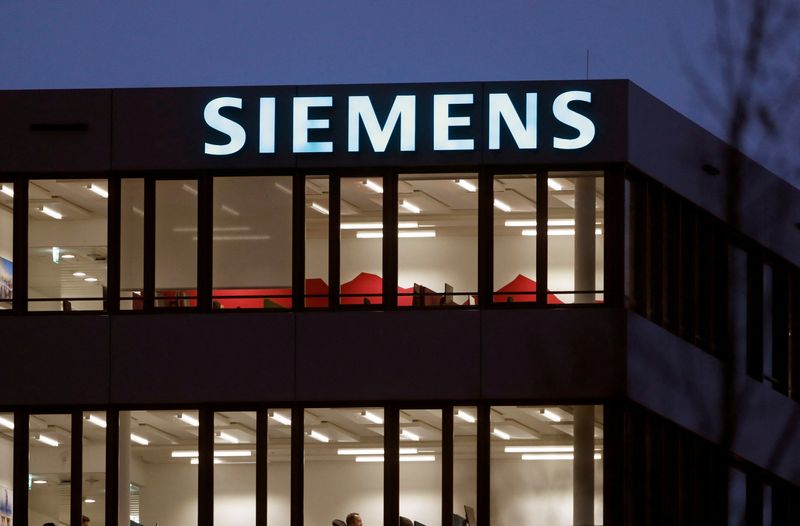(Reuters) - German conglomerate Siemens (ETR:SIEGn) said on Tuesday it will start producing solar energy equipment in the United States in 2024 through a contract manufacturer in Wisconsin.
The announcement marks a move by one of the world's largest manufacturers to capitalize on incentives in President Joe Biden's year-old landmark climate change law to boost American-made supplies of solar energy components and compete with China.
Siemens will produce solar string inverters, devices that convert energy generated from solar panels into usable current, for the U.S. utility-scale market, it said in a statement. The products will be made at a facility in Kenosha, Wisconsin, operated by Sanmina.
"Working with Sanmina to establish this new production line, Siemens is well positioned to address supply challenges our country is facing as we work to localize production for green and renewable infrastructure," Brian Dula, vice president of electrification and automation at Siemens Smart Infrastructure USA, said in the statement.
The work for Siemens will create up to a dozen jobs at the factory to start, the company said. Production will scale up to a capacity of 800 megawatts of inverters per year.
The Inflation Reduction Act has unleashed $100 billion in investment in the domestic solar sector in the last year, including $20 billion for solar and storage manufacturing, the top U.S. solar trade group said this week.

More than 50 solar manufacturing facilities have been announced or expanded since the IRA passed, according to the Solar Energy Industries Association study. That includes about 7 gigawatts of inverter capacity.
IRA tax credits incentivize both producers and buyers of domestically made clean-energy equipment. For example, solar projects that use American-made equipment, including inverters and other components, can qualify for a bonus tax credit worth 10% of the project's cost.